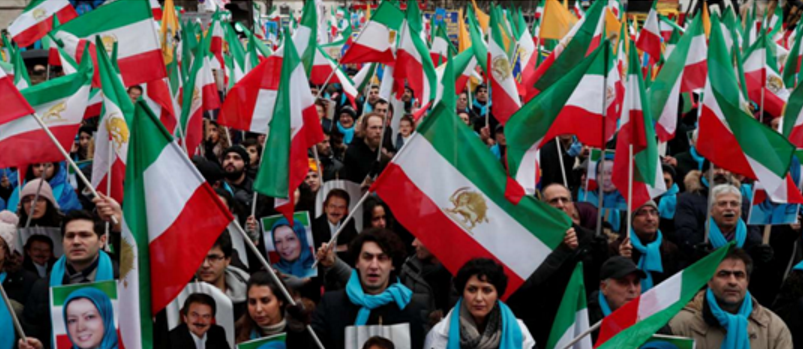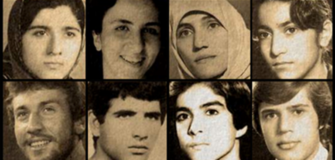Iran’s 40 Years of Darkness
Share

BRET STEPHENS – The New York Times – Thursday, February 14, 2019
From its beginning 40 years ago this week, the Islamic Republic of Iran has enjoyed the generous benefit of the doubt from credulous observers in the West. History hasn’t been kind to their sympathy.
“The depiction of him as fanatical, reactionary and the bearer of crude prejudices seems certainly and happily false,” wrote Princeton’s Richard Falk of the Ayatollah Khomeini in an op-ed for The Times on Feb. 16, 1979. “Having created a new model of popular revolution based, for the most part, on nonviolent tactics, Iran may yet provide us with a desperately-needed model of humane governance for a third-world country.”
A decade later, after a reign of unbridled terror that culminated with the infamous fatwa against Salman Rushdie and the 1988 mass murder of thousands of political prisoners, including children, there was another false dawn. Several, in fact.
Ali-Akbar Hashemi-Rafsanjani, who became Iran’s president after Khomeini’s death, was viewed as a reformer. In truth he was a kleptocrat who orchestrated an international bombing and assassination campaign stretching from Buenos Aires to Berlin. Rafsanjani’s successor, Mohammad Khatami, was supposed to be a moderate. That didn’t stop the bloody crackdown on student protests in 1999 or Iran’s illicit pursuit of a nuclear weapons program during his tenure.
Mahmoud Ahmadinejad was one Iranian leader who got little international sympathy. Yet even under him Western reporters penned flattering tributes to Iran’s purported openness — right up until the moment the regime stole the 2009 election and brutally suppressed the failed, if inspiring, Green Movement that followed.
Next was Hassan Rouhani, a man the West imagined it could do business with. Business it did, in the form of the Iran nuclear deal and — until the Trump administration put an end to it — the lifting of sanctions.
Yet as goodwill flowed toward Iran, malice flowed out. In 2015 the government executed close to 1,000 people, roughly double the figure of 2010. Last month, it publicly hanged a 31-year-old man on charges of kidnapping and having sex with another man; he’s one of an estimated 5,000 gays and lesbians killed by the Islamic Republic.
Abroad, and not just in the Middle East, Iran and its proxies continue to plot violence. An Iranian attempt to bomb the meeting of an opposition group near Paris was foiled last summer. In October, Copenhagen recalled its ambassador to Tehran after another Iranian assassination attempt was prevented in Denmark. In January, Germany banned Iran’s Mahan Air because of its role in ferrying arms and fighters to commit atrocities in Syria. German intelligence officials have also accused Iran of trying to acquire nuclear materials in 2016, after the nuclear deal went into effect.
These are countries that want better relations with Iran, and have made efforts to steer a course independent from the Trump administration. Tehran’s behavior gives the lie to the idea that it matches conciliation with conciliation. It matches conciliation with contempt.
Donald Trump’s foreign policy has mostly been shambolic, but credit where it is due: Other than the stunning folly of the announced withdrawal of U.S. forces from Syria, where they could help check Tehran’s regional ambitions, he has gotten Iran mostly right.
America’s withdrawal from the nuclear deal has not led Iran to resume its nuclear program (despite some gesturing to that effect). A tougher U.S. tone is likely behind the sharp drop in Iranian harassment of U.S. Navy ships in the Persian Gulf. The resumption of sanctions has put Iran under acute economic stress.
Most importantly, ordinary Iranians know where to pin the blame. Last summer, social media captured Iranian protesters chanting “Death to Palestine,” “No to Gaza, no to Lebanon,” and “Leave Syria and think of us.” These are people sick of going hungry and unpaid while singing the “Death to America” theme song.
The overarching goal of Western policy cannot be to appease Iran into making partial and temporary concessions on its nuclear program, purchased at the cost of financing its other malignant aims. The goal must be to put an end, finally, to 40 years of Persian night.
This should not be a military campaign. But it can be a campaign of economic pressure, to put Iran’s leaders to a fundamental choice between their ideological ambitions and the needs of their people. It can be a campaign of diplomatic pressure, to underscore that a regime that routinely flouts the rules of civilized countries can’t be treated as one itself. It can be an intelligence campaign, to continue to expose and subvert Iran’s efforts to acquire and field strategic arms.
Above all, it has to be a human-rights campaign. Liberals and progressives should not find it difficult to join conservatives in championing the rights of women in Iran, particularly women removing their headscarves in public and courageously facing the consequences. Nor should it be difficult for liberals and conservatives alike to call attention to the plight of Iran’s political prisoners, much as both sides were once moved to action by the plight of political prisoners in the Soviet Union or China or South Africa.
Back when there was an idea of something called the free world, led by the United States, Americans cared about such things, and were willing to act. It is not too late for Americans to do so again, when so many are still in the dark.
Follow The New York Times Opinion section on Facebook, Twitter (@NYTopinion) and Instagram.
